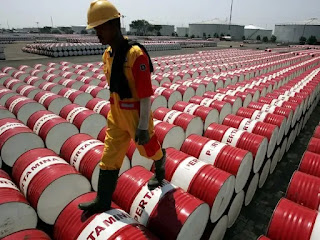How Saudi Arabia is Capturing the Global Sports and Entertainment Market – And Why It Matters
Introduction: A New Global Player Emerges
In recent years, Saudi Arabia has emerged as a powerhouse in global sports and entertainment. From hosting Formula 1 races and heavyweight boxing matches to acquiring major football players and clubs, the kingdom’s aggressive push into these sectors is impossible to ignore. While some see it as a diversification effort, others call it “sportswashing.” But what’s really driving Saudi Arabia’s strategy—and why now?
Chapter 1: The Saudi Vision – Beyond Oil
Saudi Arabia’s dramatic entry into global sports and entertainment is rooted in Vision 2030, a strategic plan launched by Crown Prince Mohammed bin Salman (MBS). Its goal? Reduce Saudi Arabia’s economic dependence on oil and transform it into a vibrant, diversified economy.
Key aspects include:
-
Developing tourism and culture sectors
-
Attracting foreign investment
-
Creating jobs for a young population (over 60% under 30)
-
Projecting a modern, progressive global image
Sports and entertainment are central to this transformation—not just as industries, but as tools of soft power and diplomacy.
Chapter 2: The Sports Takeover
Football Frenzy
Saudi Arabia has gone all-in on football. In 2023 alone, it signed major international stars like Cristiano Ronaldo, Neymar Jr., and Karim Benzema to the Saudi Pro League. Clubs like Al-Nassr and Al-Hilal are suddenly household names globally.
-
PIF (Public Investment Fund) took ownership of Newcastle United in the Premier League.
-
The Saudi Pro League spent over $1 billion in transfers, a figure rivaling top European leagues.
-
Saudi Arabia is bidding for the 2034 FIFA World Cup, practically unopposed.
Combat Sports Domination
Boxing and MMA have become key battlegrounds:
-
Hosted mega-events like Tyson Fury vs. Ngannou and Joshua vs. Ruiz II
-
UFC and WWE signed multi-event deals in Saudi Arabia.
-
Saudi Arabia is becoming a neutral and high-paying venue for superfights, often with record-breaking purses.
Motorsport & Extreme Events
-
Formula 1 Saudi Arabian Grand Prix is now a permanent fixture.
-
Extreme E and Formula E events promote the country’s shift toward sustainability.
-
Massive investment in rallying and motorsport infrastructure, including the Dakar Rally.
Chapter 3: The Rise in Entertainment
Beyond sports, Saudi Arabia is investing billions into entertainment and media:
-
MDLBEAST Soundstorm – One of the world’s biggest EDM festivals, hosted in Riyadh
-
Film Production – Partnerships with Hollywood and local investment in Saudi-made films
-
Cinemas Opened – After being banned for decades, cinemas have now proliferated across the country
-
Gaming & Esports – Home to Savvy Games Group (owned by PIF), which has invested in Riot Games, Capcom, and Embracer Group
It’s not just about fun. It’s about creating a cultural footprint in industries where global influence is built.
Chapter 4: Why Is Saudi Doing This?
1. Economic Diversification
With oil markets volatile and global interest in renewables rising, Saudi Arabia is racing to diversify. Sports and entertainment generate tourism, global media attention, and domestic spending.
2. Youth Engagement
Saudi youth crave global culture and entertainment. Investing in these sectors gives the young population a reason to stay, participate, and support national transformation.
3. Global Image Makeover
The kingdom’s image has long been criticized for its human rights record. Hosting glamorous events and aligning with global icons helps rebrand Saudi Arabia as modern, open, and investor-friendly.
4. Geopolitical Soft Power
Sports and entertainment are potent tools for diplomacy. By controlling venues and events, Saudi Arabia positions itself at the heart of global conversations, fostering relationships and influence.
Chapter 5: The Controversy – Sportswashing or Strategy?
Critics argue that Saudi Arabia is engaging in “sportswashing”—using sports to distract from political issues like repression, censorship, and the murder of Jamal Khashoggi.
However, defenders argue that:
-
Every global power uses soft power (U.S. through Hollywood, China through Olympic investments).
-
The change is real: women are driving, concerts are happening, and the public is more engaged than ever.
-
Critics often ignore Western complicity or double standards when it comes to oil and arms deals.
Chapter 6: Challenges Ahead
Despite its progress, Saudi Arabia faces significant hurdles:
-
Sustainability: Will investments generate long-term economic returns?
-
Local talent development: Can the nation produce homegrown sports and entertainment stars?
-
Social change vs. control: How far can reform go without challenging the monarchy’s authority?
-
Global resistance: Activists and some governments still push back against Saudi influence.
Conclusion: A Bold Gamble with Global Consequences
Saudi Arabia is not just investing in sports and entertainment—it is redefining its global identity through them. Whether viewed as an ambitious modernization plan or strategic distraction, the results are undeniable: the kingdom is now central to some of the biggest events and deals in world sport and pop culture.
As the world watches Saudi Arabia play host to the future of entertainment, the real question is: can this experiment truly balance image, economy, and reform—or will it collapse under its contradictions?




.jpg)


.jpg)
Comments
Post a Comment